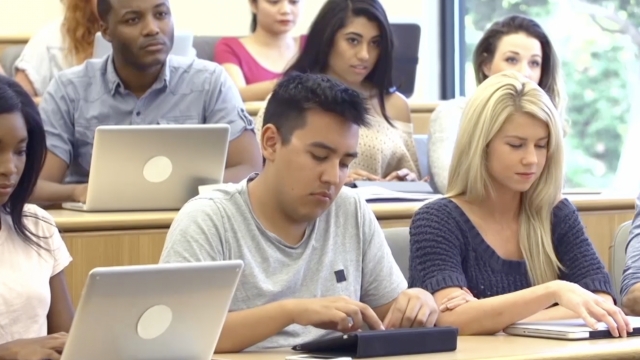The cost of tuition is a key factor students and families consider when deciding where to go to college. Filling out the Free Application for Federal Student Aid, known as FAFSA, is often the starting point for those financial decisions.
The form is typically available to students Oct. 1. But this year, the process is months behind schedule, and that's because of a congressionally mandated overhaul signed into law in 2021.
"[The FAFSA process] hasn't been touched in decades. And our effort, our charge was to transform it into the 21st century. It's more than a website fix. The formulas are different, operating systems are different," explained Education Secretary Miguel Cardonas.
The new form is shorter and easier to fill out, and the updated formulas should help more students qualify for financial aid. But that doesn't reduce the stress and worry families are feeling now.
"Until you have that award letter in your hand, and you see what you're being offered, it becomes an unknown, and that can create stress or frustration if you have not received it," said Scott Miller, the financial aid director at the University of Virginia.
At UVA, the school pushed back the admission acceptance deadline from May 1 to May 15.
"That's going to buy us some extra days to be able to produce award letters and for students to get applications turned in to us," explained Miller. Numerous other schools have made similar changes in their deadlines for new and incoming students.
For some schools, submitting the financial aid request paperwork late could mean missing out on financial aid. Miller explained that UVA is able to meet 100% of student aid needs, but not all schools are that lucky. "We have the flexibility to work around students' date of submission of their application and [have] it not penalize them. But at certain schools, yes, they could run out of some funding just because of lateness," Miller said.
Secretary Cardona says officials are talking to school administrators, parents and students daily about the FAFSA delay and its impact. But in the end, Cardona says the changes should make higher education more accessible.
"We anticipate more federal aid going out this year than in our country's history, which is good, because higher education has become out of reach for so many students," Cardona said.
For those stuck in the waiting game, you can find some peace in knowing that this is happening to students and schools nationwide. Based on current estimates, schools could start sending out award letters in late March or April.
SEE MORE: Biden administration announces $1.2 billion in new student debt relief
Trending stories at Scrippsnews.com



